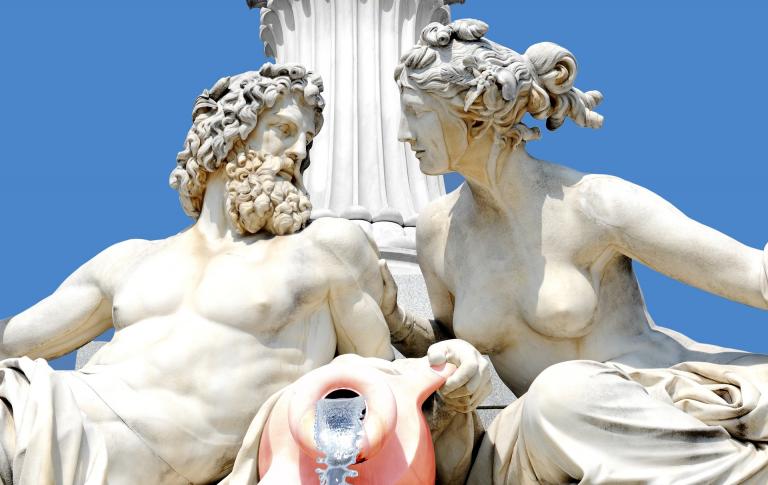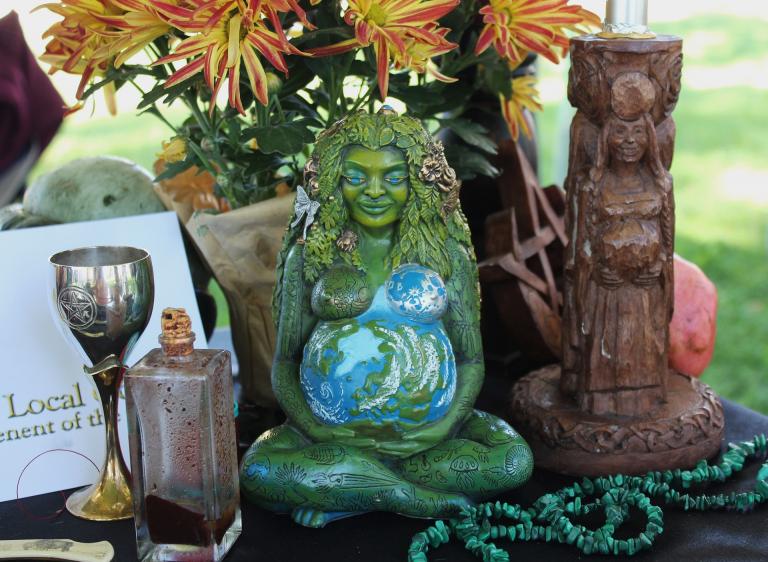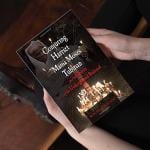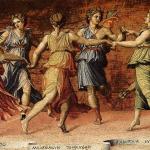A few days ago, Ode and I were helping Car with a cleaning job related to his work at our manufactured home community. Mistakes were made by the contracted company meant to do the job, so we jumped in last minute to assist. Over the course of the afternoon, a young lady related to the community’s maintenance man came by with him to help get the home ready. Soon after arriving she began peppering me with questions about Paganism.
Not surprising.
We are pretty open about our spiritual practices and beliefs in our community. We aren’t in anyone’s faces about it but Ode and I are readers (Tarot and Spiritual respectively) at Artes and Craft, the (oft mentioned on our podcast) Pagan store in a nearby town. Also, I wear my pentacle and pendulum every day whether at home, the library or the grocery store.
I’m sure we have all had conversations with the curious or truth seekers out there about our spiritual paths as Pagans. Often, I’ve found the other person will say something like “I still believe in God (in the Christian sense) but I am very open-minded.” Isn’t it interesting how people feel it necessary to provide that caveat when asking about spiritual beliefs other than what society deems as standard?

This particular afternoon, the young lady asking questions made a similar statement. Once our tasks were complete, and we were walking out the door, she asked if she could come to our house sometime to learn more about Paganism. After answering several questions and hearing her emphasis on the word, I began to think she may have a misunderstanding of what “paganism” means. “Sure,” I said. “But remember, Paganism covers a lot of spiritual traditions and beliefs. In my family, we call ourselves Pagan but each follow a different path. There isn’t just one way to be a Pagan. I’m a Green Witch. Ode is a Heathen. Car is a Druid. You’ll need an idea of what you want to know and who is the best to answer your other questions.”
She nodded.
“I just want to learn about Paganism. A few years ago, I got into Wicca. Read a bunch of books and stuff but it got all dark and I’m a Christian, so I stopped doing that but I’m very interested in Paganism.”
Mighty Brighid give me strength.
Unfortunately, I did not have time to speak further with this young woman and I do hope she comes by to ask her questions. I’d love the chance to dispel her of the notion that Wicca is a “dark” religion. I’d also like to have a chat with her about magick and how “dabbling” (her words) is never a good idea.
So, I thought I’d unpack the word “paganism”.
Information is power right? Best to be prepared for when people come to us with a universe of wrong thinking about who we are, what we do, and why we might use an overall term such as “Pagan” to define a vast and varied spiritual community.
According to Google Dictionary, “paganism” is a noun and can be defined as “a religion other than one of the main world religions, specifically a non-Christian or pre-Christian religion.” An additional definition is “a modern religious movement incorporating beliefs or practices from outside the main world religion, especially nature worship.”

In Classical Latin, “paganus”, from which the modern word “Paganism” is derived, meant rural, rustic, and at some point later civilian. The term first found use in the fourth century among early Christians (no surprise there) to describe people in the Roman Empire who practiced polytheism. Wikipedia states that this was either because these “pagans” were rural and provincial as opposed to the Christian population or because they were not “Milites Christi – soldiers of Christ”.
The term “paganism” or to call someone a “pagan” (along with words such as “hellene”) was designed as an insult toward those who practiced polytheistic religion, implying inferiority of mind for worshiping other deities or following a particular cult of belief, as opposed to the Christian god. Words such as “yokel” and “bumpkin” grew from calling people “pagan” by extension. Basically, Christians used these terms to lump anyone who didn’t subscribe to their belief as a form of rhetoric for sermons and persuasive speech among the masses.
Christians came to connect “paganism” with disinterest in the Christian god, sensuality, hedonism, materialistic desires and other “worldly” matters which were considered “sinful” by either themselves, their church leaders, or as listed in their sacred book.
And it’s important to note that the non-Christian peoples of the ancient world did not call or see themselves as “pagan.” They were simply following their traditions, worshiping their deities as the slow roll of Christianization took over Europe. In fact, as sacrifice played an important role in ancient Graeco-Roman religion the practice became a good indicator for people to identify who was a “pagan” or a Christian. In later centuries, the word “heathen” came to use in Germanic regions, again to denote someone who did not adhere to the Christian religion.
Despite its origins, artists who had an interest in ancient Greece used the word “pagan” as a self-descriptor in the 19th century. In the 20th century, spiritual practitioners reclaimed the words “Pagan” and “Heathen” for Modern Paganism, the Neopagan Movement and the Polytheistic Reconstruction Movement.
The definitions of Pagan and Heathen have not changed in that the words denote a person who has a spiritual belief system or practice outside of the main monotheistic world religions (Judaism, Christianity, Islam). But now, these words are descriptors of practitioners who are part of a vibrant and beautiful conglomeration of beliefs, polytheistic religions and self-styled spiritual paths which can encompass reverence for nature, magick, sacred femininity, and a plurality of divine beings from a rainbow of pantheons.

Is there still a stigma toward us Pagans and Heathens outside of Paganism within Christianity or the other mainstream religions? You betcha! An attitude of derision and fear which has followed us all the way from the 4th century, especially amongst those Christian folks who started it all in the first place.
So, how do we respond to people like the young woman interested in Paganism but who does not seem to understand how many spiritualities are sheltered under that umbrella term? How do we respond to those who do not understand that “dark” does not necessarily mean “evil”?
For me, the answer lies in knowing the history from which polytheism, Paganism, Druidry, Heathenry, Wicca, Witchcraft et al have derived. How the words used in the past as insults are now reclaimed to empower modern practitioners – like Witch.
We can also answer whatever questions we are able or find the resources for research to revisit the topic later if we do not know. My hope is that one day, Pagans worldwide will usher those in the mainstream religions to a place of understanding that our beliefs and deities are nothing to be feared or reviled. Through being inclusive, helping others as needed, teaching and guiding when asked honest questions, and yes, sometimes knocking a few heads together (in a metaphorical and/or spiritual sense) when people outside our community (i.e.: Evangelicals) are gettin’ ugly.
Sorry. That’s my Daddy’s rural upbringing coming through.


















